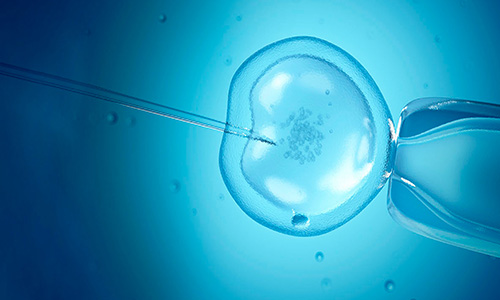New IVF technique hailed as the ‘most exciting advance in fertility treatment for 40 years’
January 15, 2018
Source: Daily Mail
 997
997

A new IVF method that takes thousands of pictures of embryos to select the best eggs has increased the likelihood of a baby being born by 25 percent. The developing embryos are photographed while in incubators every 10 to 20 minutes and then sent to a computer to rank the eggs using algorithms.
Research including 24,000 documented treatments led by leading fertility expert Professor Simon Fishel compared IVF babies born with and without the new technique. Parents Paul and Paula Chapman were the first to use the new approach which successfully led to the birth of their daughter Jaycie, three.
The couple, from Mansfield, Nottinghamshire, had been unable to conceive for two years and went to the Nottingham-based Care Fertility group to seek help. Mr Chapman said: 'We could watch Jaycie's development from the very start of her life'.
The study found that embryos chosen for use by the time-lapse imaging process were more likely to have a successful birth. This is compared to women who used donor eggs or their own eggs for IVF treatment without the new system.
Professor Fishel said: 'This is wonderful and the research demonstrates how this new technology will revolutionise the way we do IVF. 'This is the most exciting advance since I began work in this field 40 years ago.'
During the study, researchers found that the speed, how the embryos divide and when can be deciding factors to a successful pregnancy. Professor Fishel added: 'Previously we would have to take embryos out of their temperature controlled incubator and take a snapshot of it every 24 hours, potentially exposing them to damage.
The successful study led by Professor Fishel was published in the journal Reproductive BioMedicine Online and will be highlighted at a conference in Italy in May.
By DduRead more on
- Things to Know before Buying Newborn Baby Incubators March 31, 2022
- Highly Resistant Food Poisoning Bug Responds to Antibiotics September 6, 2018
- Smartphone Based Diagnosis to Identify Mosquitoes Transmitting Infection September 5, 2018
- 3 Natural Plant Extracts Manufacturers on Drugdu.com September 4, 2018
- Shenzhen Chuanggan – Health Assessment Facility Supplier September 4, 2018
your submission has already been received.
OK
Subscribe
Please enter a valid Email address!
Submit
The most relevant industry news & insight will be sent to you every two weeks.



